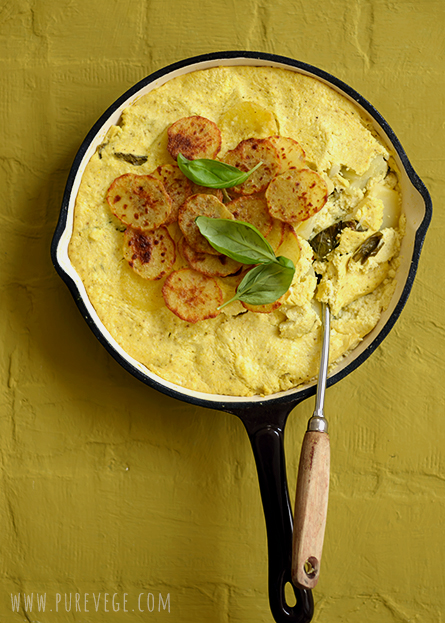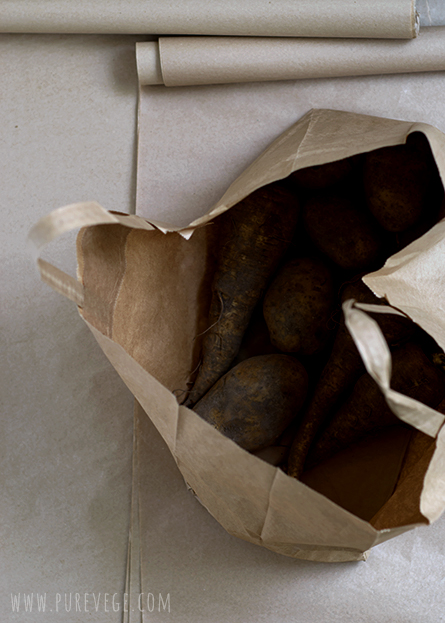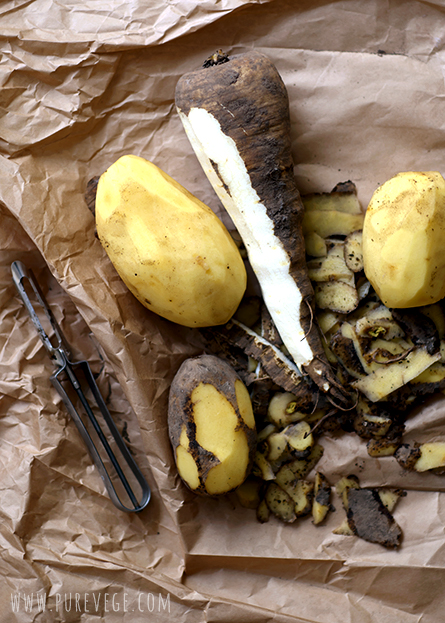Born as a prince in the seclusion of Himalayan foothills, Siddhartha Gautama’s father shielded him from seeing disease, old age and death since birth. It wasn’t until at the age of twenty-nine, he met an aged man with a wrinkled face and bent back, outside the palace. The prince was shocked to hear from his charioteer that everyone’s life will eventually come to an end. Upon encountering a citizen who had fallen sick, a decaying corpse and an ascetic, he became resolute to understand and overcome suffering. Six years later, he was known as Buddha, the awakened one.


We live in the same world. 2000 years have not swept away duhkha, loss and pain. When the media brings the downside of human experience onto our breakfast table, as printed or electric news, we choose to distance from it: 239 passengers and crew members of the Malaysia Airlines’ flight MH370 who perished in the Southern Indian Ocean are mere statistics to us. We may be shaken while reading that 176 persons are still missing and 16 found demised after the landslide in Washington but, at the same time, we are safe. At least, now. Do we think that the 529 people sentenced to death in Egypt are someone’s spouses, children, parents, uncles, friends and colleagues? For us they are nameless numbers. We are somewhat immune to the atrocity of death as long as it doesn’t collide with our field of action.
When Maharaja Yudhisthira was asked what the most striking phenomenon in the world is, he replied (Mahabharata, Vana-parva 313.116):
ahany ahani bhutani
gacchantiha yamalayam
sesah sthavaram icchanti
kim ascaryam atah param
gacchantiha yamalayam
sesah sthavaram icchanti
kim ascaryam atah param
“Day after day, innumerable living beings are taken against their will to the abode of death, but those who are temporarily spared never think they will die; instead they continually desire a permanent situation. What could be more astonishing than this?”


There never seems to be an appropriate moment to speak about loss. Yet, all faith traditions, science and even the materialistic enterprise, built on economic development, strive to alleviate distress.
We tend to think the Eastern thought is pessimistic because it discusses such a difficult subject; we would rather remain blindfolded than face it. But, have you ever considered that it is too late to analyse tribulation in its acute phase? Most of us are crushed in a situation we have failed to preserve what is important to us, whether it is a beloved relationship, quality, condition, position, asset, activity, revenue, quota or goal. When an emotional storm hits slamming us from disbelief to bewilderment, denial to sadness, anger to quilt, blame to shame and fear to helplessness, our feelings prevent us from accepting and processing rational information. Sometimes we even reject consolation and affection because our hurt is too raw.
For a living entity, it is natural to response emotionally. We are sensitive creatures. Therefore, knowledge is not meant to oppress but harness our feelings before they bolt and disable us. Only in a sober state of mind we can study the true nature of things and beings. Then, at the arrival of trouble and reverse, we have a solid perspective, even though we are never fully prepared for adversities.


As long as we view material energy as the only dimension of awareness, we remain confused about dualities like pleasure and sorrow that are constantly changing. In fact, Bhagavad-gita speaks of them like the seasons following one another in the cycle of time. We can’t stop them but change our attitude towards them. Trying to achieve a permanent situation in a transitory environment – as if we were building a house on ice that will melt in due course – is hardly a sign of developed intelligence. In Sanskrit, it is called maha-maya, a grand illusion.
We experience and deal with afflictions according to our perception. In ignorance, we are both disinterested and neglectful of the eternal constituents of reality. When faced with personal disaster, we become destructive and hopeless; we take refuge in reminiscence, sleep and intoxication. When passionate, we are mainly concerned of our interest, and focus on what we can enjoy and control. With such character, we are likely furious when forced to renounce anything “mine”. Because we judge in terms of friends and enemies, anyone who disagrees with our plan – be that nature, other beings or God – deserves our revenge and wrath. But, when we cultivate purity and goodness, sattva, we gradually recognize consciousness as the substance that distinguishes matter from spirit. More we discover our indestructible form beyond ephemeral values, more we appreciate others as equal sparks of Divinity and claim no ownership over anything or anyone. Only then, we are able to specify who is losing and what is being lost, if anything, at the time of despair.
The body is but a shadow of the self. It is animate only as long as the soul illuminates it. For the soul, there is no beginning or end. Self-realization, being the privilege of human life, is the only way to come in terms with the mechanics of material laws that seem unfair and harsh at times. When it dawns to us who we are, what everything else is, what our relationships are and how to act in a progressive manner even in unfavorable circumstances, the calamities appear like dreams that no longer perplex us.
When my grandmother passed away in 1995, I sobbed in the funeral. Sitting next to me, my brother handed a napkin and whispered to my ear, “Don’t cry, she has transmigrated into another form of life.” He was right, and I knew it; after all, I lived in a monastery and studied the subject of reincarnation daily! Nonetheless, I missed the association and grace of my “mummo”, and couldn’t check the tears. It was necessary to grief.
The topic of departure is complex because it involves attachment and love. Letting go anything we are keen to, is hard. If we become aware of the deathlessness and common pursuit of happiness of every soul, we can make the transition easier. It, of course, requires that we question the validity of the material concept of life and reform our paradigm accordingly.


Alu Gauranga has nothing to do with the topic we have talked about above, except that I learnt the recipe while living in the ashram. In the spiritual life everything is personal. Therefore, we also name our food and sweets after saints and incarnations in order to remember the path and goal we have taken. Gauranga means “golden limbs” and refers to the radiant complexion of Sri Caitanya Mahaprabhu. Alu is a word for potatoes. I have also used parsnips in the recipe; whether they qualify as potatoes, I leave for you to decide! In the past I have substituted part of the potatoes with fried eggplants, zucchini and other left over vegetables that seem to blend peacefully in the yellow bliss made of fresh cheese and sour cream.
An update: I was just kindly reminded that the recipe originates from the first cookbook Great Vegetarian Dishes by Kurma Dasa whom I adore.

Beautifully written. You have a different perspective of life and I do appreciate it. Cannot open the recipe at work due to firewall but definitely will read it once I am home. Loved the fresh clean look of the photographs.
ReplyDeleteThanks, Soma. Trying hard not to style the images but to be spontaneous :-) Somehow “trying hard” and “spontaneous” seem to collide in the same sentence, though!
Deletehaha....they are beautiful pictures anyway. I am trying to keep my photographs simple and clean too.
DeleteBeautifully put together...I learn so much from your writings to seek more within me...to let material things go and just be at peace with what I have and smile at my life more!!
ReplyDeleteMonica, you are right: the real wealth is found within. The secret is not artificially renounce or reject anything but see where everything comes from, to whom it belongs to and for what purpose it is given under our care. We can keep material things but give up seeing them materially.
ReplyDeleteThank you. Your quote of Maharaja Yudhisthira, made me laugh out loud.
ReplyDeleteThere is no death the Son of God is free (A Course in Miracles)... and you don't know that till you know that. And yet every awakened master has taught this since the beginning of "time"...(or the foray into death). Bless you...
and by the by your blog is beautiful, thank you.
Yes, the spirit is free. We just have to figure it out :-)
DeleteI am just making this now. I wanted to mention that when you print the recipe the quantities print as little squares so best to refer back to computer before measuring. Not sure why this happens.
ReplyDeleteHmm, that’s interesting. I have no idea why the document acts like that when printed. Sorry for the inconvenience.
DeleteWhat a beautifully written and considered post accompanied by lovely bright photos. I just made chenna today for a UK recipe, an old fashioned sweet tart, and am thrilled to find another use for the whey, other than drinking it, it takes so deliciously nutty! Thank you!
ReplyDeleteWhey is excellent for cooking rice and vegetables. It adds taste. Veggies retain their form when boiled in whey. Only pulses don’t cook in it. You can also serve it to the garden plants to drink.
DeleteI like Kurma Dasa's recipes, and I have this book of his. His cooking show from way back "Cooking With Kurma" was one of the first tv shows I ever watched and still look back with nostalgia. :)
ReplyDeleteReally?! That’s nice. I never forget the episode he made “a wonderful batch of pasta pesto”! I still hear “how” he said the sentence in my head :-) Super cute.
DeleteEven though I know our souls never die, it doesn't make living as a human any easier....I don't understand the unfairness of this world as humans and why some of us live in luxury and others have to grasp for survival.
ReplyDeleteThank you for bringing out such an important point.
DeleteReality is a complex organism. The Western mind approaches it generally from the material point of view and places human life on the top of the pecking order, in the position of an enjoyer and controller. We are born with the assumption that everything has to go our way. When it doesn’t, we often blame others or God. I’m sure you’ve heard many times, “If there is God, why does he let us suffer?” It is another way of saying, “If there is God, he should serve us,” because – remember – we are above everyone else. We are entitled; this is our world. But, is it?
The Vedic paradigm considers the material manifestation inferior to spiritual. Our planet is just a tiny environment in a much larger cosmic hierarchy, which the modern man is neither interested nor able to gain knowledge of by empirical methods. If you have seen a black mustard seed – according to the Vedas, that’s about the size of our universe in a sack that is full of similar seeds. There are higher and lower forms of embodiment. The earth-like conditions are considered average or intermediate, and the waves of pleasure and suffering are equally present here. We create constantly reactions by our actions. This is not a paradise! None of the material platforms are free from birth, disease, old age and death. That’s the name of the game, whether we like it or not. The cosmic order is not random; it works according to natural laws, which we dislike because they threaten our position and desire to lord it over. We would rather set our own rules, and that’s what we are trying to do here, isn’t it? But it is an illusion, because we are bound head to toe by tendencies and mentalities that are far from liberated states of consciousness. We imprison ourselves and then, in jail, wonder why it is not as nice as we would like it to be. This is not our first rodeo here! We have taken millions of births in various species and situations. In the light of Vedic wisdom, it’s fair to say we have a very little idea who we are, what we are dealing with, where we are heading at… and, yet, we think, we have it all figured out.
The sack of seeds is compared to a cloud in the corner of ever expanding total existence. It’s a location we have chosen to be because it matches our bodily identity, actions and needs. God didn’t put us here! Every individual soul has a free-will and capability of making choices at every given moment. At some point we have wanted to experience independence and autonomy from our spiritual origin and there is no other realm than the material world to do it because the rest of the existence operates on a different frequency: the principle of service and devotion.
Reality is like a body of cells working in a loving reciprocation. Those of us, who want to ignore or disturb the balance, are given a suitable framework: a set of senses; the mind that thinks, feels and wills; the intelligence; and the ego that identifies with everything it considers “me” and “mine”. On this cruise, we gradually forget the true nature of the soul, although we are constantly driven to find happiness and to be content, which is the constitutional state of the self. We are sat, cit, ananda: full of knowledge and bliss, eternally. It is a matter of education and mercy to revive that potential. As long as we remain ignorant, we volunteer to suffer.
You are gifted Lakshmi. It amazes me how you can take such difficult topics and explain it so beautifully. The black mustard seed example gave me goosebumps.Thank you so much, please do not stop writing.
ReplyDeleteThank you for the encouragement, Ratna! It makes me so happy to hear what I write resonates in you; not because I write it but because the subject is valuable and so scarcely spoken of.
DeleteDear Lakshmi, Thank you for your very sensitive and thoughtfully written post and replies here. I love that you wrote about loss combined with a recipe that includes both creamy and delicious cheese and sour cream, and the most earthy of vegetables, potatoes and turnips. Loss can make us reflect on all the aspects of the person or thing we lost -- the most delicious and the most mundane. Your post was both educational and comforting to me. It reminded me in some ways of the book, "The Snow Leopard," by Peter Matthiessen, about his trek to the Himalayas not long after the loss of his wife. I am still processing my grief at the losses in the last several months, but things are gradually shifting and sorting and it is okay. Looking at old pictures, reading old letters, and thinking about those important people in my life has made me smile as often as it has made me feel sad. I appreciate you bringing up the people sentenced to death in Egypt, and the people lost in the plane. I know that life is paradox; and yet I am sometimes astounded at how we can live on so easily when others suffer. Look at Syria. My hope is that humanity will one day understand that we all have to work together, not to defeat death and destruction, but to make everyone's days of living more worthwhile. Perhaps we will be able to come together on this planet and heal the oceans, the land, and the air, as well. For those are other living parts of our world whose losses we are largely ignoring at present. When you mentioned that sometimes we even reject consolation because our hurt is so raw, that struck a chord. One of my constant prayers is that my heart remain open. It is not easy to do; sometimes an open heart hurts a lot. But look at what beauty your own open heart has shown here. Thank you so much.
ReplyDeleteOh my God, my mouth is watering just by looking at the pictures! thanks a lot for sharing the recipe, I will try to cook it tonight- just hope that it looks like the one on the picture
ReplyDeleteLakshmi I am spellbound by the way you write. Such deep complicated philosophies or rather truths of life in such lucid pristine language. The recipe is very very innovative. But at the same time it seems so "you" :D
ReplyDelete